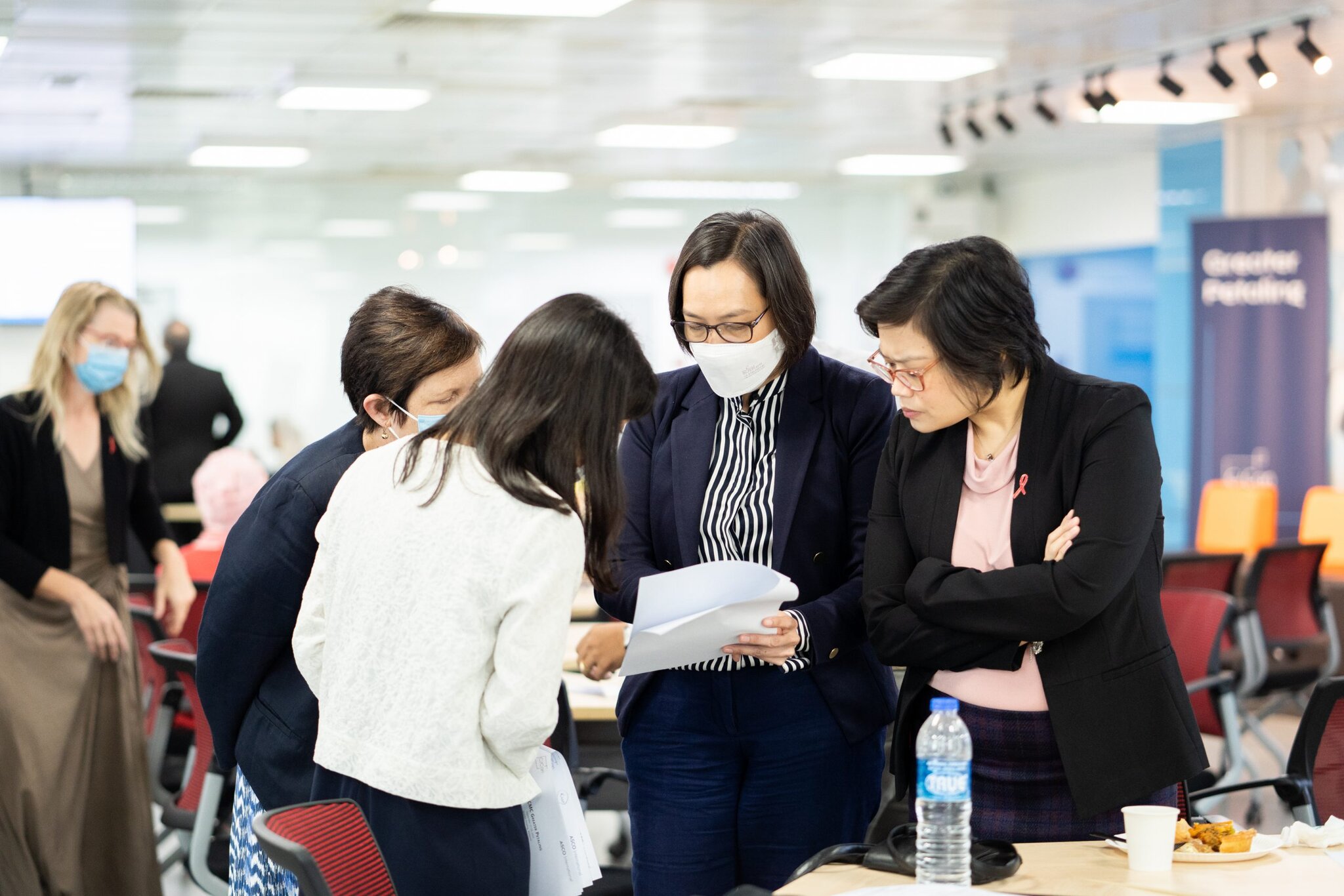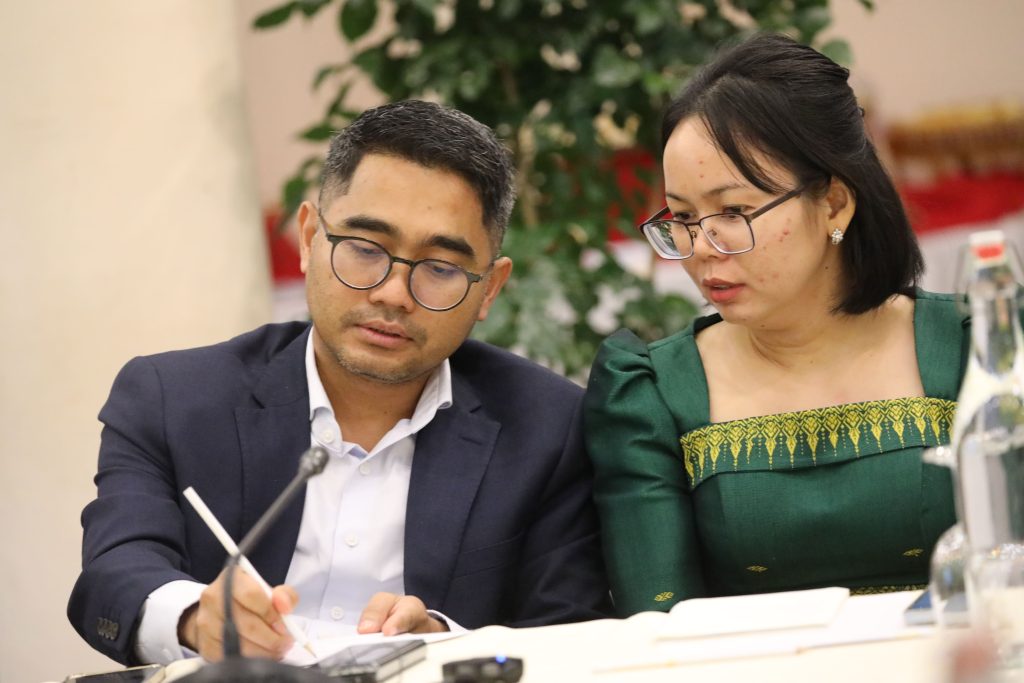
- An innovative methodology, piloted in four C/Can cities, addresses the need for a multidisciplinary team approach to cancer care in resource-constrained settings.
The recent article, “An innovative methodology for strengthening a multidisciplinary team approach in cities in low and middle income countries”, published on 17 October in the Special Series: Driving Innovation to Advance Cancer Equity of the journal JCO Global Oncology, highlights an innovative methodology developed to bolster multidisciplinary team care in low- and middle-income countries (LMICs).
In collaboration with a network of partners, City Cancer Challenge (C/Can) and the American Society of Clinical Oncology (ASCO) developed a package of technical cooperation support for the implementation of a multidisciplinary team approach to cancer care in LMICs cities. The article describes learnings and experiences of the delivery of coordinated technical cooperation support implemented in four pilot cities: Cali, Colombia; Asuncion, Paraguay; Yangon, Myanmar; and Kumasi, Ghana.
Authors
- Vanessa Eaton, American Society for Clinical Oncology, Alexandria, VA, USA
- Angela Zambrano, Fundación Valle Del Lili, Cali, Colombia
- Valeria Sanabria, Hospital Nacional de Itauguá del MoH—Hospital de Clínicas de la Universidad Nacional de Asunción—Centro Médico La Costa, Asunción, Paraguay
- Roberto Lopez, Centro Médico La Costa, Asunción, Paraguay
- Ishmael Kyei, Komfo Anokye Teaching Hospital, Kumasi, Ghana
- Rai Mra, Myanmar Medical Association, Yangon, Myanmar
- Vanessa Sarchet, American Society for Clinical Oncology, Alexandria, VA, USA
- Megan Kremzier, American Society for Clinical Oncology, Alexandria, VA, USA
- Josep Borras, Department of Health, Catalonia, Spain
- Thet Ko Aung, City Cancer Challenge, Geneva, Switzerland
- Rebecca Morton Doherty, City Cancer Challenge, Geneva, Switzerland
- Susan Henshall, City Cancer Challenge, Geneva, Switzerland
- Rolando Camacho, City Cancer Challenge, Geneva, Switzerland
Key Objective
A multidisciplinary team approach on cancer care, defined as the coordinated planning, decision making and information sharing between health care providers of different specialties who work together on cancer patients care, directly influences the quality of cancer care. This approach also facilitates the appropriate development and use of resource appropriate guidelines for management of cancer patients. Yet delivering quality cancer care through a multidisciplinary team approach is particularly challenging in LMICs, where human resources are limited and health systems are fragmented.
With this in mind, C/Can and ASCO, with contribution and support from their network of global partners, set out to develop an innovative methodology to address the MDT gap in C/Can cities. The article describes the methodology and preliminary results implemented in four C/Can cities: Cali, Colombia; Asunción, Paraguay; Yangon, Myanmar and Kumasi, Ghana.
This work addresses two priority areas: first, developing consensus-based, city-wide resource appropriate cancer patient management guidelines for the most common and curable cancers; and second, building capacity for the implementation of MDTs to manage those patients in the institutions providing cancer care in the city.
Knowledge Generated
The first case study features early learnings from Cali and Asuncion, where fragmentation of care for cancer patients and the lack of standardised and integrated cancer management were identified as main challenges. Application of the C/Can methodology meant that resource-appropriate guidelines were locally developed by multidisciplinary teams and that the skills and know-how needed to draft and implement these guidelines were provided by external experts through international consultations and through capacity building activities like the ASCO Multidisciplinary Cancer Management Course (MCMC) and scientific visits to reference centers partners of C/Can.
The experiences in Cali and Asuncion highlighted how leveraging local expertise and know-how, and early engagement of the right stakeholders are key factors for strengthening a multidisciplinary team care approach in LMICs.
Implementation of the methodology in the third city, Yangon, emphasised the importance of city-to-city knowledge-exchange. Learnings that emerged from the experience in Cali and Asuncion were essential for informing the process in Yangon.
The fourth city in this study, Kumasi, provides a successful example of strengthening local capacity by leveraging virtual platforms. The global pandemic forced the teams to adapt the C/Can methodology and move from in-person to a Virtual International Consultation (VIC) in Kumasi. While this virtual modality was undesired at first, it resulted in a more iterative and efficient drafting process. This modality is now being adopted in other C/Can cities as standard.
In Yangon and Kumasi, implementation of the methodology reinforced the value of peer-to-peer exchange supported by virtual communications and capacity development platforms.
Relevance
Dr Thet Ko Aung, Senior Manager for Technical Cooperation at C/Can and one of the authors of the article, shares key learnings that have emerged from this work:
These case studies have emphasised the importance of practical components like resource-appropriate guidelines and a highly trained health workforce, but have also revealed that multisectoral collaboration and communication between local professionals and global partners can accelerate efforts to strengthen the multidisciplinary team care approach.





